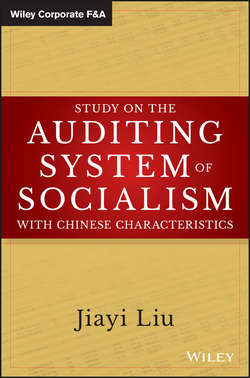Читать книгу Study on the Auditing System of Socialism with Chinese Characteristics - Liu Jiayi - Страница 16
На сайте Литреса книга снята с продажи.
Chapter 1
The Birth and Development of the Auditing System of Socialism with Chinese Characteristics
1. HISTORY OF THE CHINESE AUDITING SYSTEM
(5) Auditing System in the Early Days of the Republic of China and Nanjing KMT Government Period
ОглавлениеFrom the early days of the Republic of China to the Nanjing Kuomintang (KMT) government period (from April 18, 1927, to May 20, 1948), the Court of Auditors was set up in parallel with the Executive Yuan (Ministry), the Supervisory Institute the Supreme Court, the Board of Examination, and other ministries, and then restructured into a subsidiary body of the Supervisory Institute. The system of combining supervision and examination was thus introduced. Under the five-chamber political system, the audit offices of the Republic of China were independent of the fiscal administration and government administrative systems, possessing certain independence. The auditing system had the features as set out below.
First, audit institutions were mandated by the Constitution. The legal status of auditing and duties of audit institutions were specified in the Provisional Constitution of the Republic of China promulgated in 1914, the Constitution of the Republic of China released in 1923, the Draft Constitution of the Republic of China unveiled in 1936, the Constitution of the Republic of China announced in 1947, and so forth. Correspondingly, four audit laws were promulgated successively.
Second, audit methods were flexible and diverse. Due to constant wars, heavy debts, and a weak financial position in this period, the audit institutions made great efforts to rectify the economic and financial order, so as to safeguard stability. They turned to ex ante audit, random investigation, field audit, travelling audit, off-office audit, and other methods, reflecting a strong trend of innovation and flexibility.
Third, the pilot project of a publicity system of audit results was carried out. The audit communique was prepared and printed by the audit institutions on a regular basis and made public. The announced contents were mainly associated with government decisions, laws and decrees on audit work, important instruments of audit business, disclosure of specific audit cases, and introduction of audit results.
Fourth, the professional quality of audit officials was emphasized. The special laws including the Establishment Law of the Court of Auditors, Law of the Court of Auditors on Organization, and Law of Penalties on Audit Officials provide a firm regulatory basis covering job requirements, qualifications for selection, salary and professional ethics, and so forth. In 1946, half of auditors in the Court of Auditors had a university degree, which was very rare among government institutions at that time.
Audit supervision played a certain role in consolidating financial discipline, combating corruption, increasing revenue and reducing expenditure, and assuring government operations. However, due to the corrupted political system and official system, the limitless abuse of power by a privileged class and financial chaos, different men and institutions in power, such as tycoons manipulating the economic lifeline and the military sectors that consumed a huge of funds, repeatedly refused to accept audit supervision. As a result of long-term wars, it became increasingly difficult for auditing to play an effective role, and it remained in name only, which was an important factor in the growing decline and fall of the Nanjing KMT Regime.
Конец ознакомительного фрагмента. Купить книгу
